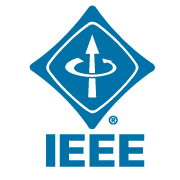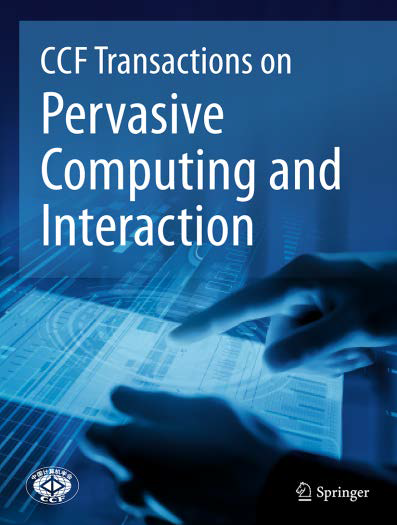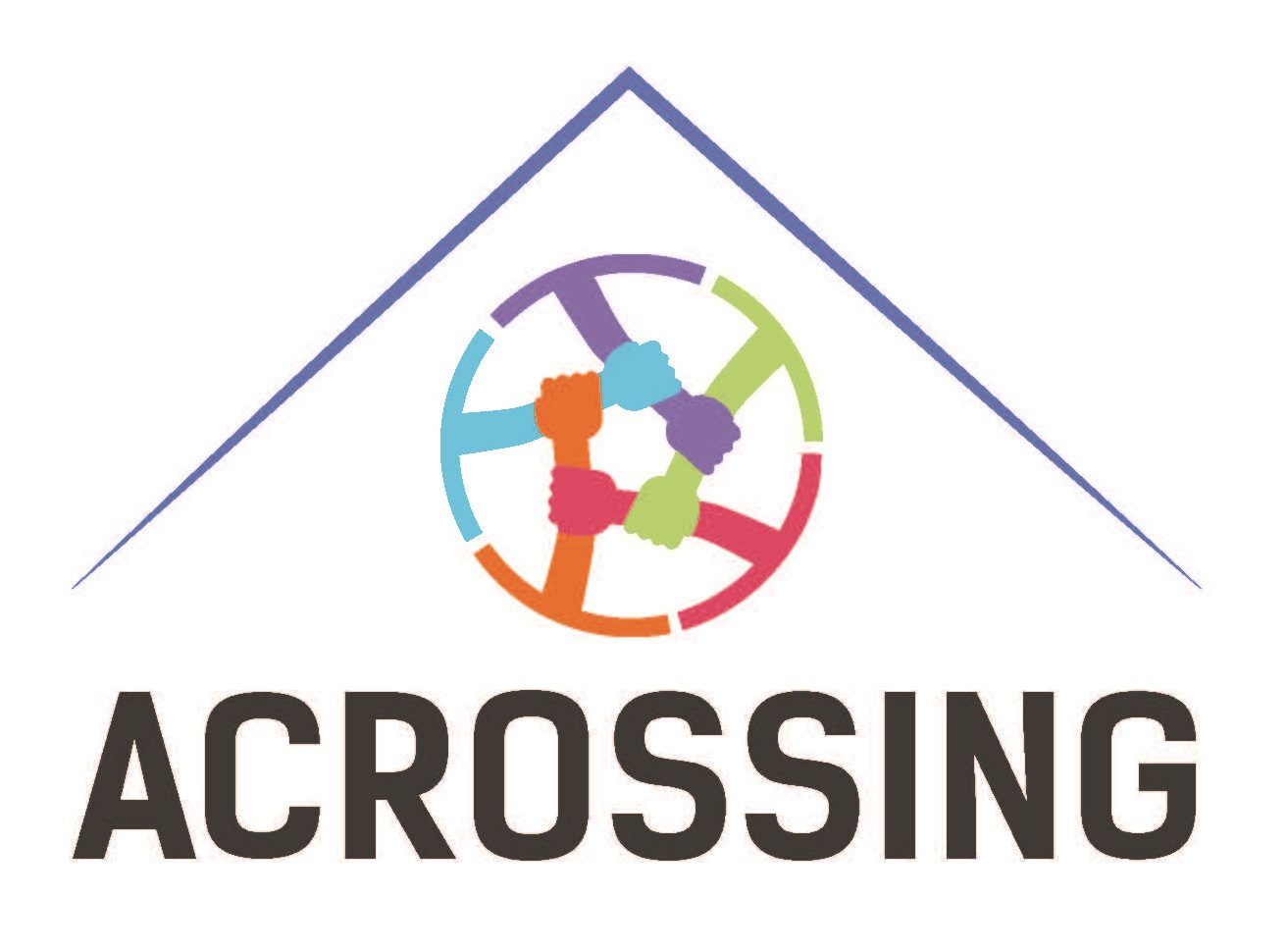Vincenzo Piuri, Department of computer Science, University degli Studi di Milano, Italy
Ambient intelligence: convergence of artificial intelligence, machine learning, biometrics, cloud-computing, and internet-of-things
Niki Trigoni, University of Oxford, UK
Enabling positioning and personalisation capabilities in the wild - challenges and opportunities
Chengsheng Pan, Nanjing University of Information Science and Technology, China
Network Traffic Theory and Technologies: Practice, Challenges and Trends
Tony Cohn, University of Leeds, UK
Building Qualitative Models of Spatio-Temporal Behaviour
Anton Nijholt, University of Twente, Netherlands (UIC 2019)
Turning Ubiquitous Smartness into Ubiquitous Playability
Peter Eisert, Humboldt University Berlin, Germany (SWC2019)
Visual Computing for Smart AR Assistance
Pierangela Samarati, Department of Computer Science of the Universita' degli Studi di Milano, Italy (ATC 2019)
Data Security and Privacy in Emerging Scenarios
Geyong Min, University of Exeter, UK (ScalCom 2019)
Autonomous Operation and Maintenance in Scalable Computing and Networking Systems
Zhiwen Yu, Northwestern Polytechnical University, China (IoP 2019)
Ten Scientific Problems in Human Behavior Understanding
Reeba Korah, Alliance College of Engineering and Design, Alliance University, Bangalore, India (SCI 2019)
IOT Enabled Smart Energy Management Systems for Smart City Applications-An Indian context
Omer F. Rana, Cardiff University, UK (invited talk)
Vertical workflows: Service Orchestration Across Cloud & Edge Resources
Yiqiang Chen, Institute of Computing Technology, Chinese Academy of Sciences, China (invited talk)
FedHealth: A Federated Transfer Learning Framework for Wearable Healthcare
Yasha Wang, Peking University, China (invited talk)
Challenges and solutions for building a self-evolving smart city
Wenbing Zhao, Cleveland State University, USA (invited talk)
Developing Smart and Connected Solutions for Healthcare and Medicine
Lu Liu, University of Leicester, UK (invited talk)
Data-Driven Service Computing
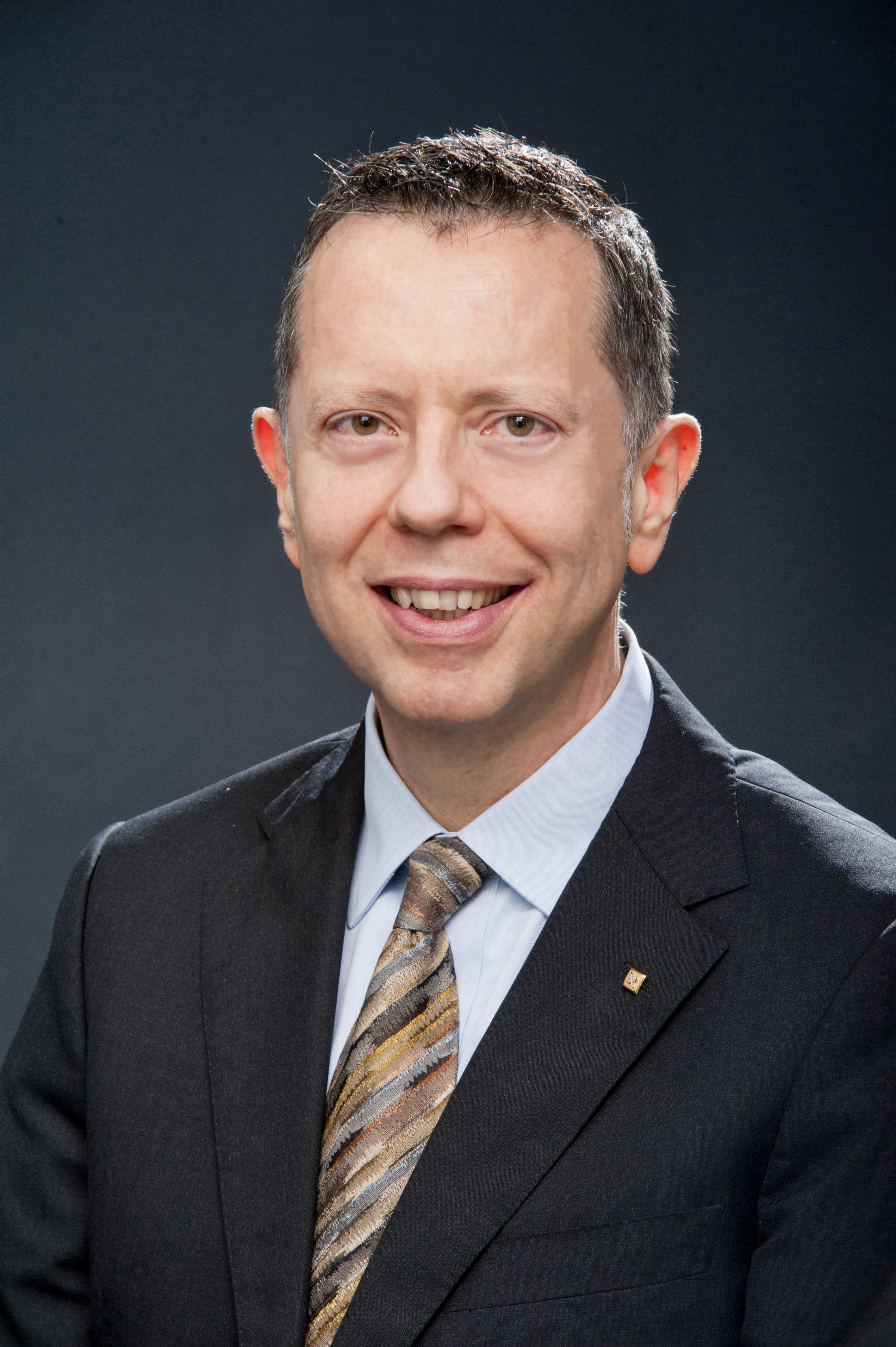 | Vincenzo Piuri Department of computer Science, University degli Studi di Milano, Italy Title: Ambient intelligence: convergence of artificial intelligence, machine learning, biometrics, cloud-computing, and internet-of-things |
|---|
Abstract
Adaptability and advanced services for ambient intelligence require an intelligent technological support for understanding the current needs
and the desires of users in the interactions with the environment for their daily use, as well as for understanding the current status of the environment also in complex situations.
This infrastructure constitutes an essential base for smart living. Various technologies are nowadays converging to support the creation of efficient and effective infrastructures for ambient intelligence.
Artificial intelligence can provide flexible techniques for designing and implementing monitoring and control systems, which can be configured from behavioral examples or by mimicking approximate reasoning
processes to achieve adaptable systems. Machine learning can be effective in extracting knowledge form data and learn the actual and desired behaviors and needs of individuals as well as the environment to
support informed decisions in managing the environment itself and its adaptation to the people’s needs.
Biometrics can help in identifying individuals or groups: their profiles can be used for adjusting the behavior of the environment. Machine learning can be exploited for dynamically learning the preferences and
needs of individuals and enrich/update the profile associated either to such individual or to the group. Biometrics can also be used to create advanced human-computer interaction frameworks.
Cloud computing environments will be instrumental in allowing for world-wide availability of knowledge about the preferences and needs of individuals as well as services for ambient intelligence to
build applications easily.
This talk will analyze the opportunities offered by these technologies to support the realization of adaptable operations and intelligent services for smart living in an ambient intelligent infrastructures.
Biography
Vincenzo Piuri has received his Ph.D. in computer engineering at Politecnico di Milano, Italy (1989). He is Full Professor in computer engineering at the Università degli Studi di Milano,
Italy (since 2000). He has been Associate Professor at Politecnico di Milano, Italy and Visiting Professor at the University of Texas at Austin and at George Mason University, USA.
His main research interests are: artificial intelligence, computational intelligence, intelligent systems, machine learning, pattern analysis and recognition, signal and image processing, biometrics,
intelligent measurement systems, industrial applications, digital processing architectures, fault tolerance, dependability, and cloud computing infrastructures. Original results have been published
in more than 400 papers in international journals, proceedings of international conferences, books, and book chapters.
He is Fellow of the IEEE, Distinguished Scientist of ACM, and Senior Member of INNS. He has been IEEE Vice President for Technical Activities (2015), IEEE Director,
President of the IEEE Computational Intelligence Society, Vice President for Education of the IEEE Biometrics Council, Vice President for Publications of the IEEE
Instrumentation and Measurement Society and the IEEE Systems Council, and Vice President for Membership of the IEEE Computational Intelligence Society.
He is Editor-in-Chief of the IEEE Systems Journal (2013-19), and Associate Editor of the IEEE Transactions on Cloud Computing and IEEE Access, and has been Associate Editor of the
IEEE Transactions on Computers, the IEEE Transactions on Neural Networks and the IEEE Transactions on Instrumentation and Measurement.
He received the IEEE Instrumentation and Measurement Society Technical Award (2002). He is Honorary Professor at: Obuda University, Hungary;
Guangdong University of Petrochemical Technology, China; Northeastern University, China; Muroran Institute of Technology, Japan; and the Amity University, India.
|
Top↑
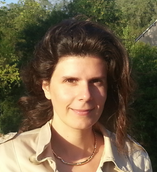 | Niki Trigoni University of Oxford, UK Title: Enabling positioning and personalisation capabilities in the wild - challenges and opportunities |
|---|
Abstract
Smart devices are becoming increasingly affordable and ubiquitous; whether they are seamlessly embedded in the environment, or carried by people and robots, they continually generate sensor data about the world that surrounds them. Recent advances in machine learning have revolutionised the ability of smart sensors to perceive and interpret context, infer human activities and react to human preferences. This talk will highlight challenges and opportunities in designing machine learning techniques to solve problems of context inference in the wild. I will then show how the power of machine learning, can become a severe vulnerability, in the absence of sufficient measures to protect the privacy of individuals.
Biography
Niki Trigoni is Professor at the Oxford Department of Computer Science, heading the Cyber Physical Systems Group. Her interests lie in the tight integration of sensing and machine intelligence for context inference, control and human-machine interaction using a variety of sensor modalities, including inertial, visual, magnetic and radio signals. She has applied her work to a number of application scenarios, including asset monitoring for construction sites, mobile autonomy with humans and robots, and track worker localisation for safety and efficiency. Trigoni is also Director of the Centre for Doctoral Training on Autonomous and Intelligent Machines and Systems and Founder of the Navenio Oxford spinout.
|
Top↑
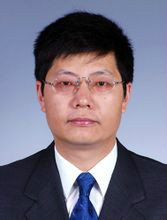 | Chengsheng Pan Nanjing University of Information Science and Technology, China Title: Network Traffic Theory and Technologies: Practice, Challenges and Trends |
|---|
Abstract
In complex network systems, there are over ten different types of heterogeneous links, including cable, short-wave, ultra-short-wave, satellite, etc. Heterogeneous networks can also be categorized into over ten types, including wired local area network, wireless short-wave network, etc. How to make these links converged and the networks unified bearing using efficient network traffic theory is the main difficulty to shorten the information transmission time and improve the network throughput.
This talk will briefly describe the definition and theorems of the traffic self-similarity in network traffic theory, discusses several methods of establishing models of heterogeneous link convergence and heterogeneous network unified bearing based on network traffic self-similarity principle, and forecasts the challenges faced by intelligent network traffic theory and key technologies.
Biography
Chengsheng Pan, Professor of Nanjing University of Information Science and Technology in China, Ph.D., doctoral supervisor. Millions of Talent Projects National candidates at hundred level, the National May 1st Labor Medal winner.
He has been engaged in integrated network theory and technology research, and has achieved systematic and innovative results, and solved important practical problems for major national projects in China. He has won two second prizes for national scientific and technological progress,
and six first prizes for provincial and ministerial level technological inventions and scientific and technological progress. He served as a member of the expert committee in the field of network information and deputy leader of the national high technology project expert group for two terms. He completed the first space
information network ground verification test in China and the first space and air information network verification test in China. He also undertook the design and development of key network systems for a series of major projects in China.
|
Top↑
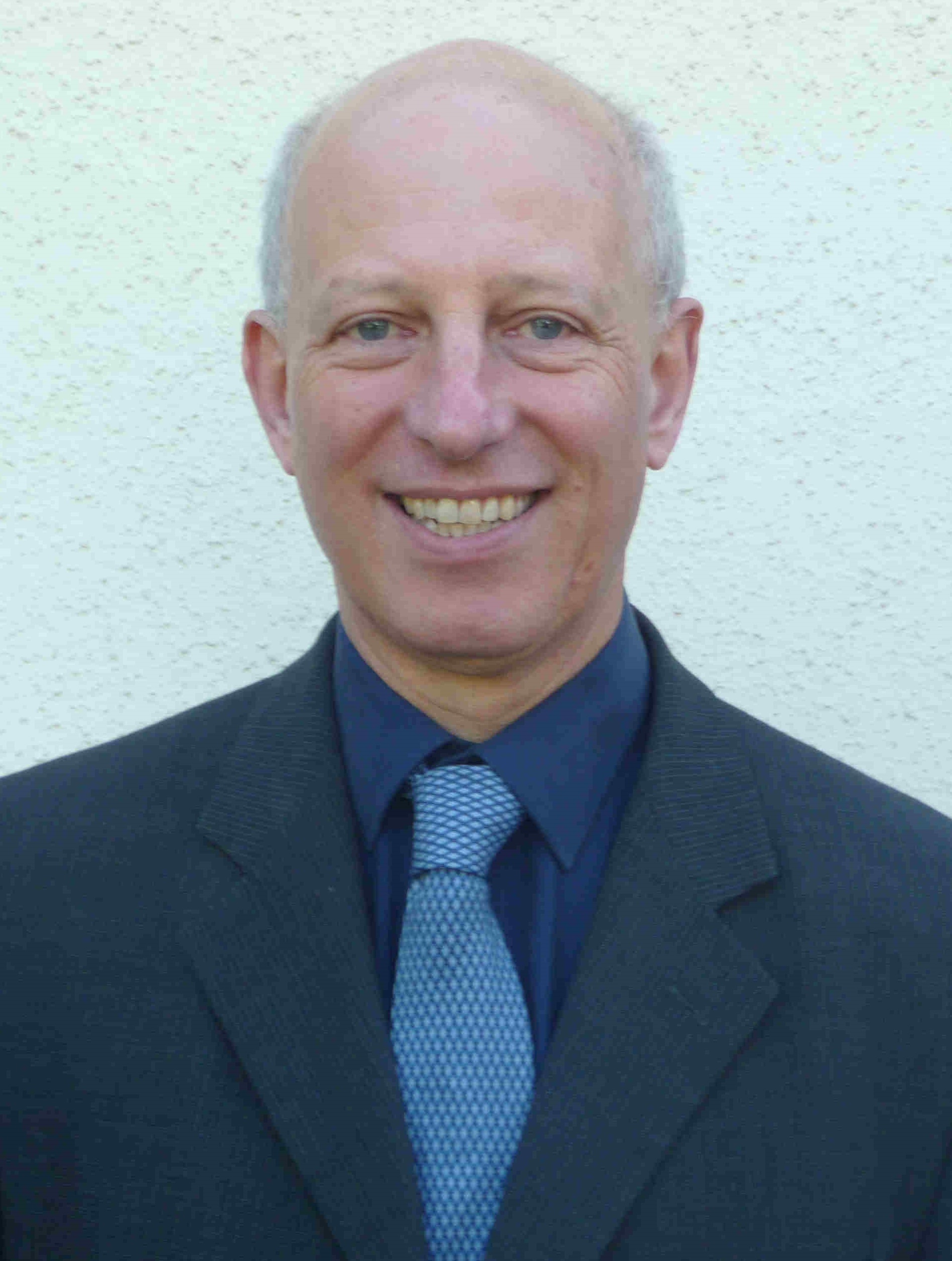 | Tony Cohn University of Leeds, UK Title: Building Qualitative Models of Spatio-Temporal Behaviour |
|---|
Abstract
In this talk I will present research conducted at Leeds on building models of activity from video and other sensors, using both supervised and unsupervised techniques.
Activities may occur in parallel, while actors and objects may participate in multiple activities simultaneously. The representation exploits qualitative spatio-temporal relations to provide symbolic models at a relatively high level of abstraction. For supervised learning, I will show how the supervisory burden can be reduced by using what we term "deictic supervision," whilst in the unsupervised case I will present a method for learning the most likely interpretation of the training data. I will also show how objects can be "functionally categorised" according to their spatio-temporal behaviour and how the use of type information can help in the learning process, especially in the presence of noise.
Biography
Tony Cohn holds BSc and PhD degrees from the University of Essex. He spent 10 years at the University of Warwick before moving to Leeds in 1990 where he founded a research group working on knowledge representation and reasoning with a particular focus on qualitative spatial/spatio-temporal reasoning.
His research has broadened to encompass Cognitive Vision, Robotics, Grounding Language in Vision,
Decision Support Systems, and computational neuroscience. He also holds an appointment as a Turing
Fellow at the UK Alan Turing Institute. He is the recipient of the 2015 IJCAI Donald E Walker
Distinguished Service Award which honours senior scientists in AI for contributions and service to
the field during their careers, as well as the 2012 AAAI Distinguished Service Award for
“extraordinary and sustained service to the artificial intelligence community”. He is a Fellow
of the Royal Academy of Engineering, and is also a Fellow of AAAI, AISB, EurAI (Founding Fellow),
the BCS, and the IET. He is Editor-in-Chief of the journal Spatial Cognition and Computation and has been Chairman/President of the UK AI Society SSAISB, the European Association for Artificial Intelligence (EurAI), KR inc, the IJCAI Board of
Trustees and was the Editor-in-Chief of the journal Artificial Intelligence 2007-2014 and of the AAAI Press 2004-14. He remains a Director of KR Inc. He holds visiting Distinguished Professor Appointments at Tongji University and Qingdao University of Science and Technology.
|
Top↑
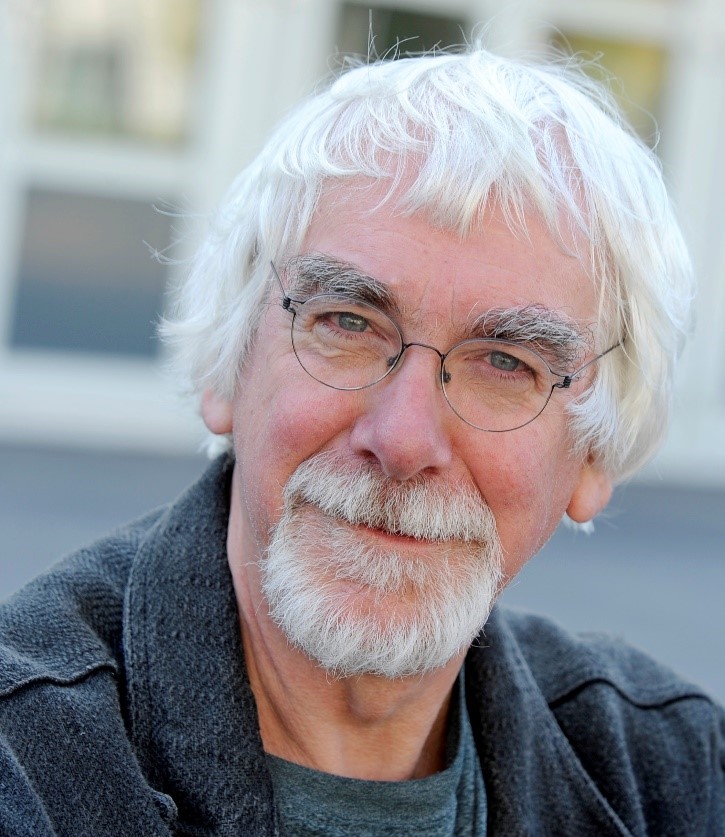 | Anton Nijholt University of Twente, Netherlands Title: Turning Ubiquitous Smartness into Ubiquitous Playability |
|---|
Abstract
Digital technology makes cities smart. City managements can make use of information that can be extracted from databases in which data is collected about energy consumption,
traffic behavior, waste management, human behavior in public environments and even opinions of the general public, for example as they can be obtained from social media use.
But can this help to make living in a city more enjoyable? How can digital technology make cities 'playful', allow citizens to engage in playful and entertaining activities
that help to enjoy their daily and sometimes boring activities such as commuting, working, career and social obligations, housekeeping? In this talk we investigate how sensors
and actuators in a smart urban environment can be introduced and used to design playful experiences. We discuss how ideas about playable cities have developed in recent years
and we will illustrate them with many examples ranging from top-down (city management) to bottom-up (DIY urbanism) initiatives, and the technology behind these initiatives.
Biography
Anton Nijholt has interest in human-computer interaction, playability, entertainment computing, humor research and brain-computer interfacing.
He is author of hundreds of research papers in these areas and wrote and edited several books. He has been program chair and general chair of many international conferences and workshops
devoted to affective computing, virtual agents, computer animation, faces & gestures, computational humor, entertainment computing, playable cities, and brain-computer interfaces. Nijholt
is chief-editor of the specialty section Human-Media Interaction of Frontiers in Psychology, Frontiers in Computer Science, and he is series editor of the Springer Book Series on
Gaming Media and Social Effects.
Recent edited books are “Brain Art: Brain-Computer Interfaces for Artistic Expression” (Springer, 2019) and “Making Smart Cities More Playable. Exploring Playable Cities” (Springer, 2019).
|
Top↑
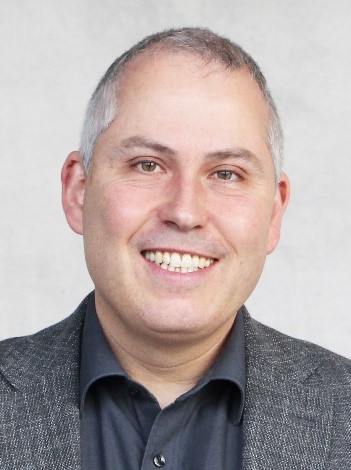 | Peter Eisert Humboldt University Berlin, Germany Title: Visual Computing for Smart AR Assistance |
|---|
Abstract
The current progress in Virtual and Augmented Reality, especially with the development and availability of VR/AR glasses, has
enabled many novel tools that assist humans in complex working processes. By tracking the user as well as objects in the scene, additional context based information can be visualized directly
on the surface of objects of interest. In this talk, 3D image and video analysis methods will be presented that allow the 3D registration of computer graphics information with the real scene.
The visualization is not restricted to simple text and iconic information but can also provide rich content like the structure of a tumor in medical images or natural humans for remote collaboration.
This includes hybrid visualization that combine video-based methods with semantic computer graphics objects to achieve high visual quality while creating the possibility to interact with and modify
the augmented content. Examples from real-world applications will be shown in the areas of multimedia, industry and medicine.
Biography
Peter Eisert is Professor for Visual Computing at the Humboldt University Berlin and heading the Vision & Imaging Technologies Department of Fraunhofer HHI, Berlin, Germany.
He is also Professor Extraordinaire at the University of Western Cape, South Africa. In 2000, he received the Dr.-Ing. degree "with highest honors" from the University of Erlangen-Nuremberg, Germany.
He then worked as a postdoctoral fellow at the Stanford University, USA, on 3D image analysis as well as facial animation and computer graphics.
In 2002, he joined Fraunhofer HHI, where he is coordinating and initiating numerous national and international 3rd party funded research projects.
He has published more than 150 conference and journal papers and is Associate Editor of the International Journal of Image and Video Processing as well as
in the Editorial Board of the Journal of Visual Communication and Image Representation. His research interests include 3D image/video analysis and synthesis, face and body processing,
image-based rendering, computer vision, computer graphics, machine learning in application areas like multimedia, industry, security, and medicine.
|
Top↑
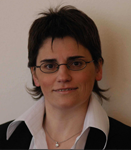 | Pierangela Samarati Department of Computer Science of the Universita' degli Studi di Milano, Italy Title: Data Security and Privacy in Emerging Scenarios |
|---|
Abstract
The rapid advancements in Information and Communication Technologies (ICTs) have been
greatly changing our society, with clear societal and economic benefits. Mobile
technology, Cloud, Big Data, Internet of things, services and technologies that are
becoming more and more pervasive and conveniently accessible, towards to the realization
of a 'smart' society’. At the heart of this evolution is the ability to collect, analyze,
process and share an ever increasing amount of data, to extract knowledge for offering
personalized and advanced services. A major concern, and potential obstacle, towards the
full realization of such evolution is represented by security and privacy issues. As a
matter of fact, the (actual or perceived) loss of control over data and potential
compromise of their confidentiality can have a strong detrimental impact on the
realization of an open framework for enabling collection, processing, and sharing of data,
typically stored or processed by external cloud services.
In this talk, I will illustrate some security and privacy issues arising in emerging
scenarios, focusing in particular on the problem of managing data while guaranteeing
confidentiality and integrity of data stored or processed by external providers.
Biography
Pierangela Samarati is a Professor at the Department of Computer Science of the
Universita' degli Studi di Milano, Italy. Her main research interests are on data and
applications security and privacy, especially in emerging scenarios. She has participated
in several projects involving different aspects of information protection. On these
topics, she has published more than 270 peer-reviewed articles in international journals,
conference proceedings, and book chapters.
She has been Computer Scientist in the Computer Science Laboratory at SRI, CA (USA). She
has been a visiting researcher at the Computer Science Department of Stanford University,
CA (USA), and at the Center for Secure Information Systems of George Mason University, VA
(USA).
She is the chair of the IEEE Systems Council Technical Committee on Security and Privacy
in Complex Information Systems (TCSPCIS), of the ERCIM Security and Trust Management
Working Group (STM), and of the ACM Workshop on Privacy in the Electronic Society
(WPES). She is a member of several steering committees. She is ACM Distinguished Scientist
(named 2009) and IEEE Fellow (named 2012).
She has received the ESORICS Outstanding Research Award (2018), the IEEE Computer Society
Technical Achievement Award (2016), the IFIP WG 11.3 Outstanding Research Contributions
Award (2012), and the IFIP TC11 Kristian Beckman Award (2008). She has served as General Chair, Program Chair,
and program committee member of several international conferences and workshops.
|
Top↑
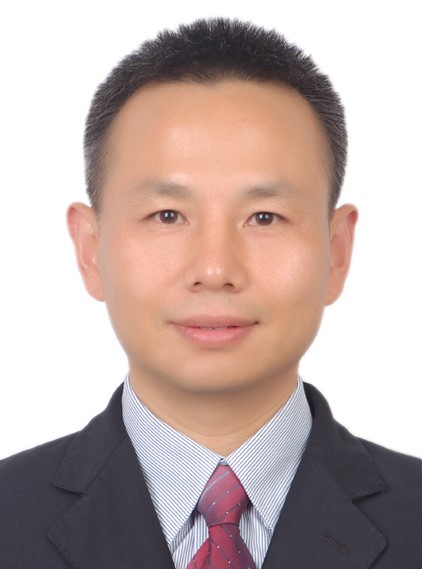 | Geyong Min University of Exeter, UK Title: Autonomous Operation and Maintenance in Scalable Computing and Networking Systems |
|---|
Abstract
As scalable computing and networking systems are becoming larger and more complex, the operations and management of such systems pose grand challenges.
An important trend is to achieve autonomous operation and maintenance and create secure, reliable and dependable systems with a “zero perceived” downtime for services provisioning.
To this end, an efficient method is to develop efficient big data analytics in order to dig valuable knowledge and actionable insights hidden in content-rich big data for improving the design, operation,
management, and intelligence of scalable computing and networking systems. This talk will present the innovative big data processing technologies and integrate big data, machine learning,
and artificial intelligence technologies to automate and enhance operations and management.
This talk opens up a new horizon of research and development by exploiting the key intelligence and insights hidden in big data for the design and improvement of scalable computing and networking systems.
Biography
rofessor Geyong Min is a Chair in High Performance Computing and Networking. His recent research has been supported by European Horizon-2020, FP7, UK EPSRC, Royal Society, Royal Academy of Engineering, and industrial partners including British Telecom, IBM, and INMARSAT.
He has published more than 200 research papers in leading international journals including IEEE/ACM Transactions on Networking, IEEE Journal on Selected Areas in Communications,
IEEE Transactions on Computers, IEEE Transactions on Parallel and Distributed Systems, and at reputable international conferences, such as SIGCOMM-IMC, INFOCOM, and ICDCS.
He is an Associated Editor of several international journals, e.g., IEEE Transactions on Computers, IEEE Transactions on Cloud Computing, and Computer journals.
He served as the General Chair/Program Chair of a number of international conferences in the area of Information and Communications Technologies.
|
Top↑
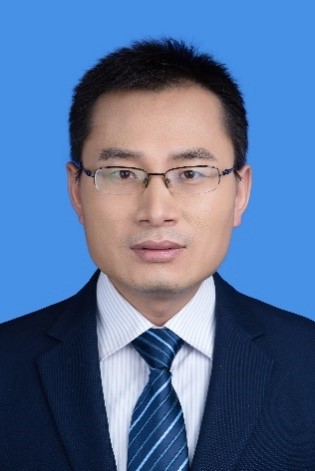 | Zhiwen Yu Northwestern Polytechnical University, China Title: Ten Scientific Problems in Human Behavior Understanding |
|---|
Abstract
Human behavior understanding is of great importance for variety of applications, such as personalized recommendations, smart home, urban planning, and anti-terrorism.
Although there has been significant progress on the understanding of human behaviors, we still face a number of theoretical and technical challenges that need be further explored.
In this talk, I will introduce ten most important fundamental open problems in this field. They are expected to provoke innovative studies on human behavior understanding,
e.g., theory improvement and data collaboration. In this talk, I will also present our recent research works in this topic.
Biography
Dr. Zhiwen Yu is currently a professor of the School of Computer Science, Northwestern Polytechnical University, China.
He has worked as an Alexander Von Humboldt Fellow at Mannheim University, Germany from Nov. 2009 to Oct. 2010, a research fellow at Kyoto University,
Japan from Feb. 2007 to Jan. 2009, and a post-doctoral researcher at Nagoya University, Japan in 2006-2007. His research interests cover ubiquitous computing,
mobile social networks, and human-computer interaction. He has served as an associate/guest editor for a number of international journals, such as IEEE Transactions on Human-Machine Systems,
IEEE Communications Magazine, and ACM Transactions on Intelligent Systems and Technology. He is the General Chair of CPSCom 2019, SmartCity 2016, CPSCom 2015,
and UIC 2014, the Program Chair of ACM TURC 2018, EUC 2013, HumanCom 2012, and UIC 2010, the Vice Program Chair of PerCom 2015, the Workshop Chair of UbiComp 2011.
He has published around 150 scientific papers in refereed journals and conferences, e.g., ACM Computing Surveys, IEEE TKDE, IEEE TMC, IEEE THMS, ACM TKDD, UbiComp,
PerCom, etc. Zhiwen Yu is a senior member of IEEE, a distinguished member of CCF (China Computer Federation) and the vice chair of CCF Pervasive Computing Technical Committee.
He received the CCF Young Scientist Award in 2011, the CPSCom'13/GPC'12/AMT'12/UIC'09 best paper awards, the Humboldt Fellowship in 2008,
and the CCF Excellent Doctoral Dissertation Award in 2006. He got the National Science Fund for Distinguished Young Scholars in 2017.
|
Top↑
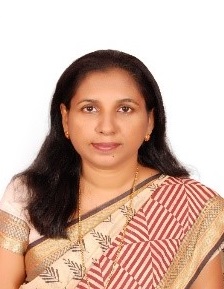 | Reeba Korah Alliance College of Engineering and Design, Alliance University, Bangalore, India Title: IOT Enabled Smart Energy Management Systems for Smart City Applications-An Indian context |
|---|
Abstract
One of the key features in any smart city project is the application of smart solutions to infrastructure and services in area based development in order to make them better. For example, using fewer resources and providing cheaper services. Smart cities focus on usage of IOT to collect data and use them to manage assets and resources efficiently. Monitoring and managing waste, power generation, home and building automation, smart water supply management and intelligent transport and road management are some of the works in progress in mu institution, Alliance University.
The talk will focus on the problems in waste management by monitoring the current state of waste bins and their surroundings, extraction of energy from the collected waste and later converting into electricity to provide clean and cheap electricity to remote places of the city as well to the poor community, and nn integrated Vehicle to grid technology system with capability to control bidirectional flow of electric energy between a vehicle and a grid.
Biography
Dr. Reeba Korah heads Alliance College Engineering and Design. She has a vast experience of over 24 years in the field of engineering, academics, administration and active research. Prof. Korah is an alumnus of prestigious Anna University, Chennai. Her technical expertise spans VLSI design, image and video processing and wireless sensor networks.
She has about 40 research publications to her credit in reputed international journals and conference proceedings. She has presented her research works in IEEE International conferences held in China, Spain and Canada. She has authored five books pertaining to electronics engineering. Dr. Korah serves as a doctoral level research supervisor in Anna University and Alliance University, Bangalore. She has produced eleven Ph.D. holders so far. She is also a doctoral committee member in these universities. She serves as a reviewer for the reputed Elsevier International Journal of Micro Electronics and Emerald Compel International Journal for Computation and Mathematics in Electrical and Electronic Engineering. Dr. Korah is the recipient of the Karnataka Government’s research funding to establish a Centre of Excellence in Electronic device modelling and VLSI Chip design.
|
Top↑
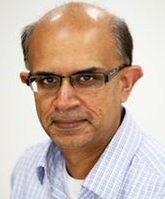 | Omer F. Rana Cardiff University, UK Title: Vertical workflows: Service Orchestration Across Cloud & Edge Resources |
|---|
Abstract
Many Internet of Things (IoT) applications today involve data capture from sensors that are close to the phenomenon being measured,
with such data subsequently being transmitted to Cloud data centers for analysis and storage. Currently devices used for data capture often differ from those
that are used to subsequently carry out analysis on such data. Increasing availability of storage and processing devices closer to the data capture device,
perhaps over a one-hop network connection or even directly connected to the IoT device itself, requires more efficient allocation of processing across such
edge devices and data centers. Scalability in this context needs to consider both cloud resources and initial processing on edge resources closer to the user.
We refer to these as "vertical workflows" – i.e. workflows (a combined set of services) which are enacted across resources that can vary in: (i) type and behaviour;
(ii) processing and storage capacity; (iii) latency and security profiles. Understanding how a workflow can be enacted across these resource types is outlined, motivated
through multiple application scenarios. The overall objective considered is the completion of the workflow within some deadline constraint,
but with flexibility on where data processing is carried out.
Biography
Omer F. Rana is Professor of Performance Engineering at Cardiff University, with research interests in high performance distributed computing,
data analysis/mining and multi-agent systems. He was formerly the deputy director of the Welsh eScience Centre and had the opportunity to interact with a number of
computational scientists across Cardiff University and the UK. He is a fellow of Cardiff University's multi-disciplinary "Data Innovation" Research Institute.
Rana has contributed to specification and standardisation activities via the Open Grid Forum and worked as a software developer with London-based Marshall
Bio-Technology Limited prior to joining Cardiff University, where he developed specialist software to support biotech instrumentation. He also contributed
to public understanding of science, via the Wellcome Trust funded "Science Line", in collaboration with BBC and Channel 4. Rana holds a PhD in "Neural Computing and Parallel Architectures"
from Imperial College (London Univ.), an MSc in Microelectronics (Univ. of Southampton) and a BEng in Information Systems Eng. from Imperial College (London Univ.).
He serves on the editorial boards (as Associate Editor) of IEEE Transactions on Parallel and Distributed Systems, (formerly) IEEE Transactions on Cloud Computing,
IEEE Cloud Computing magazine and ACM Transactions on Internet Technology. He is a founding-member and associate editor of ACM Transactions on Autonomous & Adaptive Systems.
|
Top↑
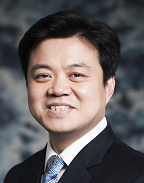 | Yiqiang Chen Institute of Computing Technology, Chinese Academy of Sciences, China Title: FedHealth: A Federated Transfer Learning Framework for Wearable Healthcare |
|---|
Abstract
With the rapid development of computing technology, wearable devices such as smart phones and wristbands make it easy to get access to people's health information including activities, sleep, sports, etc. Smart healthcare achieves great success by training machine learning models on large quantity of user data. However, there are two critical challenges. Firstly, user data often exists in the form of isolated islands, making it difficult to perform aggregation without compromising privacy security. Secondly, the models trained on the cloud fail on personalization. In this talk, I will introduce FedHealth, the first federated transfer learning framework for wearable healthcare to tackle these challenges. FedHealth performs data aggregation through federated learning, and then builds personalized models by transfer learning. It is able to achieve accurate and personalized healthcare without compromising privacy and security. Experiments demonstrate that FedHealth produces higher accuracy (5.3% improvement) for wearable activity recognition when compared to traditional methods.
FedHealth is general and extensible and has the potential to be used in many healthcare applications.
Biography
Dr. Yiqiang Chen received the BS and MS degrees in computer science from Xiangtan University, Xiangtan, China,
in 1996 and 1999, respectively, and the PhD degree in computer science from the Institute of Computing Technology,
Chinese Academy of Sciences, Beijing, China, in 2003. In 2004, he was a visiting scholar researcher with the
Department of Computer Science and Engineering, Hong Kong University of Science and Technology (HKUST), Hong Kong.
He is currently a professor and the director of the Pervasive Computing Research Center, Institute of Computing
Technology (ICT), Chinese Academy of Sciences (CAS). His research interests include artificial intelligence,
pervasive computing, wearable computing, and human computer interaction. He is a senior member of the IEEE.
He has a lots of publications on several top journals and conferences, including Science (supplementary), TKDE, TNN, Scientific Reports, Scientific Data, IJCAI, AAAI UbiComp, ACM MM, ICDM. His work on wearable and transfer learning was awarded the best paper of GameNets 2014, PlatCon 2015, and ICCSE 2018. Dr. Chen is the associate editor (AE) of several journals such as IEEE Trans. On Emerging Trend on Computational Intelligence, International Journal of Machine Learning and Cybernetics, and IEEE Access. He is also the TPC chair (member) of IJCAI 2019, ISWC 2018, PerCom 2017, AAAI 2015 的 TPC Member, ICCSE 2017, and ICAA 2018.
He is the chair of IEEE UIC 2019, PCC 2010, PCC 2017, and CSCC 2019.
|
Top↑
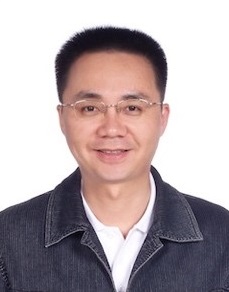 | Yasha Wang Peking University, China Title: Challenges and solutions for building a self-evolving smart city |
|---|
Abstract
Utilizing modern ICT technology to sense, understand and optimize the city, or in another word, to make the city smarter is becoming consensus of different city government around the world. The wisdom of the city is carried through a large number of smart applications. These applications often originate in several areas and gradually spread to various areas of the city. With the development of the city, the accumulation of data, and the advancement of technology, these applications have become increasingly intelligent. From a macroscopic point of view, an ideal smart city should evolve and improve in the interaction with technology, environment and regional culture like a living body, forming a self-evolving smart city. To build a self-evolving smart city faces many challenges. The first challenge is how to build rich urban applications. These applications have multiple levels of technical requirements. No single enterprise can provide a complete solution.
How to establish a synergistic mechanism and ecosystem to promote the prosperity of smart applications? The second challenge is how to make the application more convenient and smarter. Too many applications in a city may cause information overload to users. How to make the application more convenient to use, to cause less intrusion during use, so that the general public can effectively benefit from various smart-city applications, is another challenge that must be solved. Based on the research and practice of the speaker in urban computing and bigdata, this report gives possible solutions to the above challenges from both the crowdsourcing software development platform and the data-driven intelligent extraction.
Biography
Yasha Wang is a professor and associate director of National Research & Engineering Center of Software Engineering in Peking University, China. He is also the leader of the technical special group of the National Big Data Standards Committee of China and the vice chairman of the China Smart City Industry and Technology Innovation Strategic Alliance. His research interest includes ubiquitous computing, artificial intelligence, urban computing and software reuse. He has published more than 60 papers in international high-level academic conferences and journals such as ACM Ubicomp, IJCAI, AAAI, ACM CSCW, IEEE TMC, and IEEE IOTJ. Through cooperation with enterprises, he promoted relevant research results of smart cities to more than 20 cities in China. His research results won the second prize of National Science and Technology Progress Award, the second prize of Beijing Science and Technology Award,
and the first prize of Science and Technology Progress Award of the Ministry of Education of China.
|
Top↑
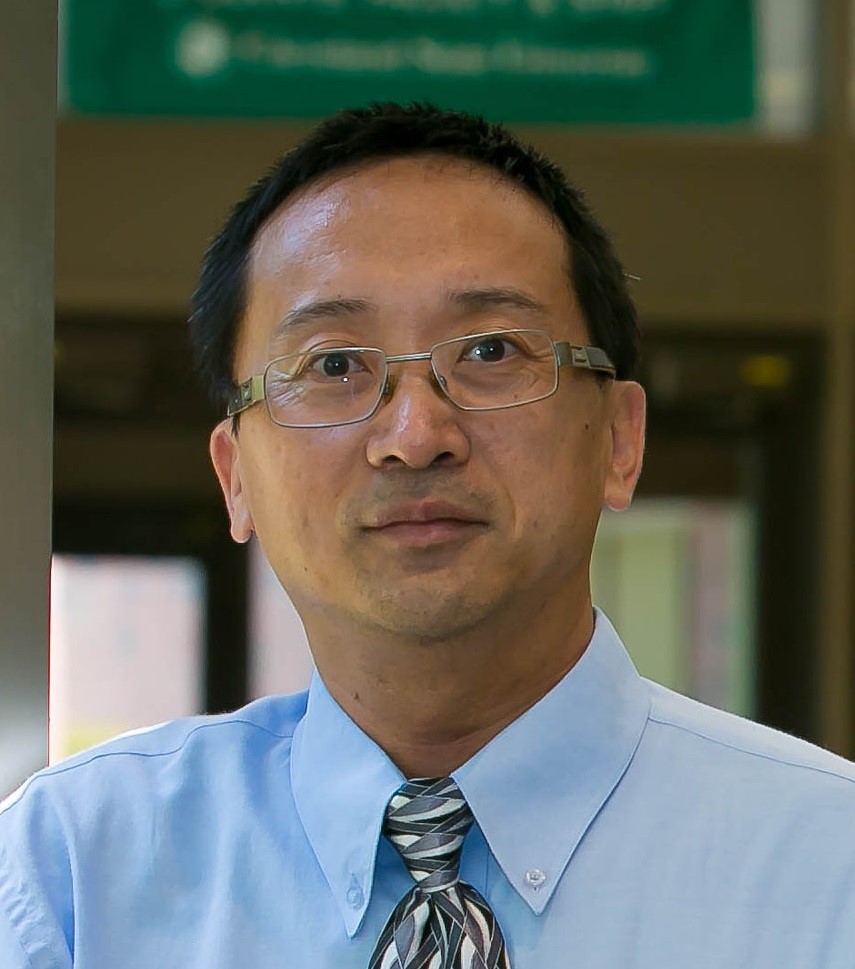 | Wenbing Zhao Cleveland State University, USA Title: Developing Smart and Connected Solutions for Healthcare and Medicine |
|---|
Abstract
In recent years, we have seen exciting new innovations in connectivity (NFC and Bluetooth LE), sensing (motion, position, voice, vision, physiology, and environment),
visualization (touch screen, virtual and mixed reality), computing (mobile phones and cloud services), and algorithms (big data, machine learning and artificial intelligence).
These technologies form the backbone of the Internet of Things, and they facilitate the development of previously unthinkable smart and connected solutions that promise to
transform healthcare and medicine from reactive and hospital-centered to preventive and personalized, from disease focused to well-being centered. In this talk, Dr. Zhao
will provide an overview of this field, present his current project on a computer-vision-based system that aims to increase the workers’ compliance to best practices in
using proper body mechanics, and outline several projects he is planning,
including their main hypotheses, the research problems to which he is seeking answers, and the main approaches he will be taking.
Biography
Dr. Zhao is a Professor at the Department of Electrical Engineering and Computer Science, Cleveland State University.
He earned his Ph.D. at University of California, Santa Barbara in 2002. He has over 200 peer-reviewed publications. Dr. Zhao’s research spans from dependable
distributed systems to human centered smart systems. His research has been funded by the US NSF, US Department of Transportation, Ohio Bureau of Workers’ Compensation,
Ohio Department of Higher Education, and Ohio Development Services Agency. He has delivered more than 10 keynotes, tutorials, public talks and demonstrations in various conferences,
industry and academic venues. Dr. Zhao is an associate editor for IEEE Access, MDPI Computers, and PeerJ Computer Science,
and a member of the editorial board of several international journals, including Applied System Innovation, Internal Journal of Parallel,
Emergent and Distributed Systems and International Journal of Distributed Systems and Technologies.
He is currently an IEEE Senior Member and serves on the executive committee of the IEEE Cleveland Section.
|
Top↑
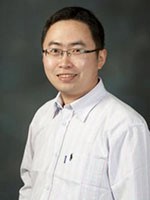 | Lu Liu University of Leicester, UK Title: Data-Driven Service Computing |
|---|
Abstract
Given the recent proliferation in the number of smart devices connected to the Internet, the era of Internet of Things (IoT) is challenged with massive amounts of data generation and service provision.
Fog Computing is gaining popularity and is being increasingly deployed in various latency-sensitive application domains. However, efficient management of services is one of the prevailing challenges in the era of IoT and Big Data.
To address this challenge, Professor Liu will introduce his recent research work on service model design with the process of how to adaptively index services, how to efficiently discover services, how to securely request services and finally dependably integrate services in a dynamic environment. Professor Liu will further present his work on data-driven service application development for engineering data analytics, social data analytics,
workload data analytics and retail data analytics.
Biography
Professor Lu Liu is the Head of School of Informatics at the University of Leicester, UK. Professor Liu received his PhD degree from Surrey Space Centre at the University of Surrey, UK.
Professor Liu's research interests are in the areas of data analytics, service computing, cloud computing and the Internet of Things and he has over 200 scientific publications in reputable journals,
academic books and international conferences. Professor Liu has secured many research projects which are supported by research councils, BIS, Innovate UK, British Council and leading industries. He received the Vice-Chancellor’s Awards for Excellence in Doctoral Supervision in 2018, BCL Faculty Research Award in 2012 and the Promising Researcher Award in 2011. He has been the recipient of 5 Best Paper Awards from international conferences and was invited to deliver 5 keynote speeches at international conferences. Professor Liu is a Fellow of BCS (British Computer Society) and currently serve as an Editorial Board member of 6 international journals and the Guest Editor for 15 international journals.
He has chaired over 30 international conference and workshops, and presently or formerly serves as the program committee member for over 60 international conferences and workshops.
|
Top↑















